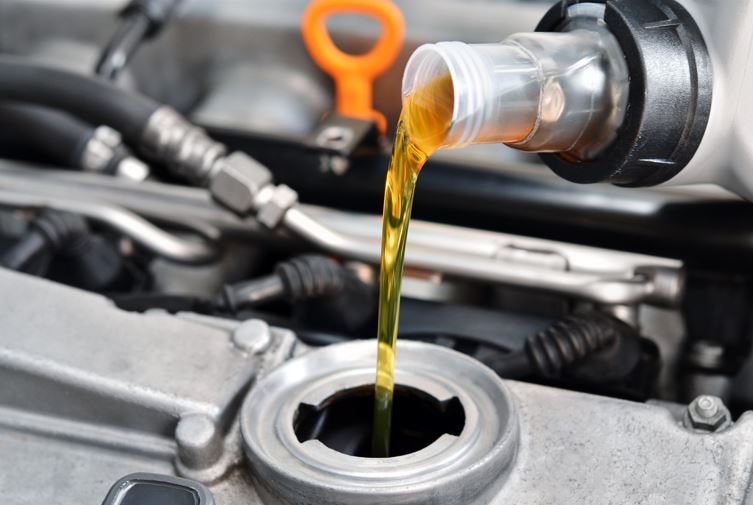Thinner and more complicated than ever: Motor Oil in 2024
Kieren Nee, Group Editor for Professional Motor Mechanic Magazine, contacted us recently to discuss the biggest changes workshops can expect to see in engine oils over the next few years and the current challenges and misconceptions that garages, workshops and the motor oil industry is facing. We were delighted to help contribute to this interesting article…..

Dipping into the silver tome that is the AA Book of the Car, published in 1976, I find the advice for “choosing the right oil” includes castor oil as a viable option, although it does concede that its use, even in racing cars, “has been superseded by mineral oil”. Although, to my surprise, castor oil is still in use in certain racing applications, I don’t think many garages would get away with stocking barrels of the “runny” stuff these days. Multigrade oils had evidently made their way onto the scene by 1976, for providing “easy winter starting”. What is most striking, however, to the modern reader (apart from the genuinely shocking warning found under Potential Dangers for the Motorist that “in women, judgement is often affected by menstruation”) is the wholly advisory tone of the whole article. Nowhere is any oil described as being necessary to a particular vehicle, nor is it ever stated that the choice of oil is anyone’s but the driver’s – how odd! Fast forward to 2024, and the situation is, shall we say, different and is only going to get different-er…
I asked Adrian Hill, Morris Lubricants, what we can expect to see in oils over the next five years. He told me that “the drive towards improved fuel efficiency will push for thinner oils and engine oil formulations in the direction of 0W-20s, 0W-16s and 0W-8s. These thinner engine oil formulations will also be required for hybrid powertrains where rapid circulation of oil from cold is required to reduce engine wear and continue to drive fuel efficient operation.”
Over in Germany, Liqui Moly’s Oliver Kuhn thought that oils would soon bottom out at around “0W-20 for diesel cars and 0W-16 for gasoline cars, and only some OEMs will go lower”.
If only it was as simple as oils getting ever thinner. In fact, as Petronas’ Fausto Lupone told me, there is still a perception in the industry that “thicker oil is better for protection”. The reality is, he tells me, “today’s vehicles vary from traditional combustion engines to hybrids, plug-ins, and fully electric models. Each demands specialised fluids for optimal maintenance, efficiency, and emission reduction.”
But it’s not just different powertrains which require different oil specifications. Each engine require its own unique blend of oils and additives, as the Witham Group’s Nigel Bottom explains: “As engine designs evolve so too must the lubricants within and the lubricant manufacturers along with the additive companies are in constant dialogue about this. In the next five years we will see a continued lean towards lighter viscosity grades and brand/engine specific specifications rather than generic qualities.
The carpool of older engines will grow and garages will have to carry more and more grades to cover off the increasing range of specifications and the correct lubricants for the correct applications.”
Choice still exists
All this is not to say you don’t have a choice when it comes to engine oils – you do. This is something Nigel is keen to emphasise, explaining that a common misconception among workshop owners is that “they have to use only the lubricant recommended by the manufacturer which is strictly incorrect. The correct oil has to be used, of course, but as long as the oil supplier carries the approved formulation specification within their portfolio, the brand is irrelevant. The right oil for the right application is important which provides the correct specifications for the OEM not the OEM’s oil itself. After all, that will be manufactured by an independent oil company.”
Likewise, there is some confusion surrounding indicators of quality, as Jason Vigrass outlines: “People may get confused with the naming and branding of engine oils. Viscosity grades such as 5W-30, 0W-20, 0W-30, etc. and the use of descriptions such as fully synthetic, synthetic-based, mineral, etc. are not an indication of the engine oil performance. These words only form part of the overall profile of the engine oil and it is the OEM specification that should drive the decision to buy a particular oil grade.”
“You wouldn’t put burgers and chips in your child every day because you know they would fall ill eventually, it’s the same with cars.”
Nigel Bottom, Witham Group

What is less clear is what separates the good from the bad. Witham’s Nigel Bottom suggests it comes down to the quality control and testing process, as well as how far beyond basic protection the oil goes: “There are many tiers, ranging from a) budget ‘judged to meet’ to b) approved ‘premium’. Approved formulations are a minimum to ensure the correct level of lubrication is given to the engine from a protection point of view and of course support with fuel economy. The role engine oils, brake fluids, gear oils etc play within a machine or engine is critical. If you think you wouldn’t put burgers and chips in your child every day because you know they would fall ill eventually, it’s the same with cars – put the right oils in which guard against corrosion in the engine, provide slick performance of the moving parts and help prevent breakdowns and wear and tear. Good oil should not be optional.”
Time to change
Something which will be a sticking point for many is that all these extra specifications means more money – not for you but for your customer. Unfortunately, saving your customers a few quid today might result in costly repairs further down the line. Lucas Oil’s Dan Morgan has identified another way garages are looking to save customers money – oil changes, or rather, skipping oil changes. He told me, not without a certain sympathy, that “garages are expected to provide customers with expert advice, but often feel obliged “to try to save the customer’s money.” Too many mechanics assume, for example, that a visual check of the oil’s level, colour and viscosity is enough evidence to advise that it’s good for a few more thousand miles yet. These and many other shortcuts to maintenance are tips that offer false economies that both the garage and the customer may come to regret later on.
It’s a situation created by insufficient background knowledge about the latest engine oils and additive technologies now available.” Not judging by colour alone is something Fausto from Petronas agrees with: “Oil colour doesn’t reliably indicate condition, so regular analysis or following manufacturer-recommended change intervals is essential.” He does concede that changing oil too often can be wasteful, which is why “lubricant suppliers have created products with extended drain intervals to combat the need for frequent replacement.” Both suggest keeping up-to-date with training opportunities is the best way for technicians to avoid such pitfalls.
From Russia with… Love?
I was invited along to the UKLA annual dinner recently – that’s the United Kingdom Lubricant Association, if you didn’t know. Mike Bewsey, president of the UKLA, referenced the recent rise in dumping as a cause for concern in the industry. I was, and remained, blissfully unaware what dumping in this particular instance referred to. Until, that is, fellow UKLA board member Nigel Bottom filled me in: “There is still short supply of high-quality raw materials for blenders partly since Covid and partly due to the Russian invasion of Ukraine. Very recently, we have seen suspected products being ‘dumped’ within the UK markets from sources alleged to be from sanctioned Russian suppliers. Not only at very reduced pricing levels but also of dubious qualities and origin. The industry also continues to see poor/incorrect quality products being offered, but through the hard work of the UKLA and the VLS (Verification of Lubricant Specifications), these products are being reported and published to the industry – I advise everyone keeps an eye on their website and sets themselves up to receive their newsletters.” Something, I too, can’t recommend highly enough.



Leave a Reply